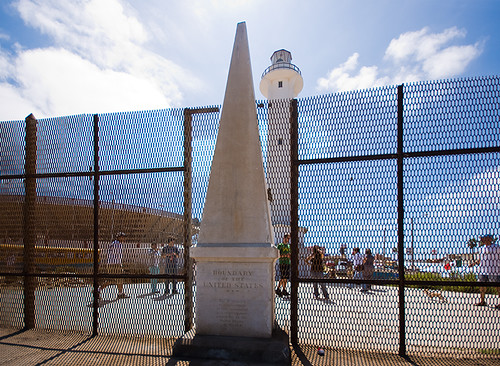From
Russell Moore:
"The Christian response to immigrant communities in the United States cannot be “You kids get off of my lawn” in Spanish. While evangelicals, like other Americans, might disagree on the political specifics of achieving a just and compassionate immigration policy, our rhetoric must be informed by more than politics, but instead by gospel and mission.
I’m amazed when I hear evangelical Christians speak of undocumented immigrants in this country with disdain as “those people” who are “draining our health care and welfare resources.” It’s horrifying to hear those identified with the gospel speak, whatever their position on the issues, with mean-spirited disdain for the immigrants themselves.
This is a gospel issue. First of all, our Lord Jesus himself was a so-called “illegal immigrant.” Fleeing, like many of those in our country right now, a brutal political situation, our Lord’s parents sojourned with him in Egypt (Matt. 2:113-23). Jesus, who lived out his life for us, spent his childhood years in a foreign land away from his relatives among people speaking a different language with strange customs.
In so doing, our Lord Jesus was re-living the life of Israel, our ancestors in the faith, who were also immigrants and sojourners in Egypt (Exod. 1:1-14; 1 Chron. 16:19; Acts 7:6). It is this reality, the Bible tells us, that is to ground our response to those who sojourn among us (Exod. 22:21; Ps. 94:6; Jer.7:6; Ezek. 22:29; Zech. 7:10). God, the Bible says, “executes justice for the fatherless and the widow, and loves the sojourner, giving him food and clothing. Love the sojourner, therefore, for you were sojourners in the land of Egypt” (Deut. 10:18-19).
This is much more than a “political” issue, abstracted from our salvation. Jesus tells us that our response to the most vulnerable among us is a response to Jesus Himself (Matt. 25:40). God will judge those who exploit workers and mistreat the poor. No matter how invisible they seem to us now, God hears (Isa. 3:15; Amos 4:1; Jas.5:4)."
To read Dr. Moore's complete post please click
here.

2 comments:
I agree that the Churches response to illegal immigrants should not be one full of vile hatred or prejudice. We are/were immigrants ourselves. I'd like to say the issue is the legality of it all but that isn't true altogether. Some are hateful in their response.
I don't propose an open borders response. There must be order and there must be a process. One of the issues that is different now than say a century ago is that immigrants don't want to become a part of America but simply be in America. That's not exactly a Church issue but it is a citizenship issue. I recently met a man from France that immigrated to the US and would not allow his children to learn French because he wanted them to be "Americans." I'm not promoting the action but the spirit behind it.
I don't believe the proper response is for Christian's to house/hide illegals. That's a violation of law and in conflict with a Biblical mandate to follow the laws of the land. I think a good alternative is to launch an initiative that would help those truly seeking to be a part of this nation to do so legally. As this process is going, the Church could provide social services such as healthcare, job services, education, and English classes.
We should not be hearless in our response. However, I don't think it's a zero sum gain. To be certain the process for immigration needs to be reformed. It is ineffective and dangerous from many aspects as it is. The church can play a role in helping those in need and finding a new more effective system.
Thanks, Scott, for posting these excerpts. It's a good challenge to look beyond the political issues.
Post a Comment